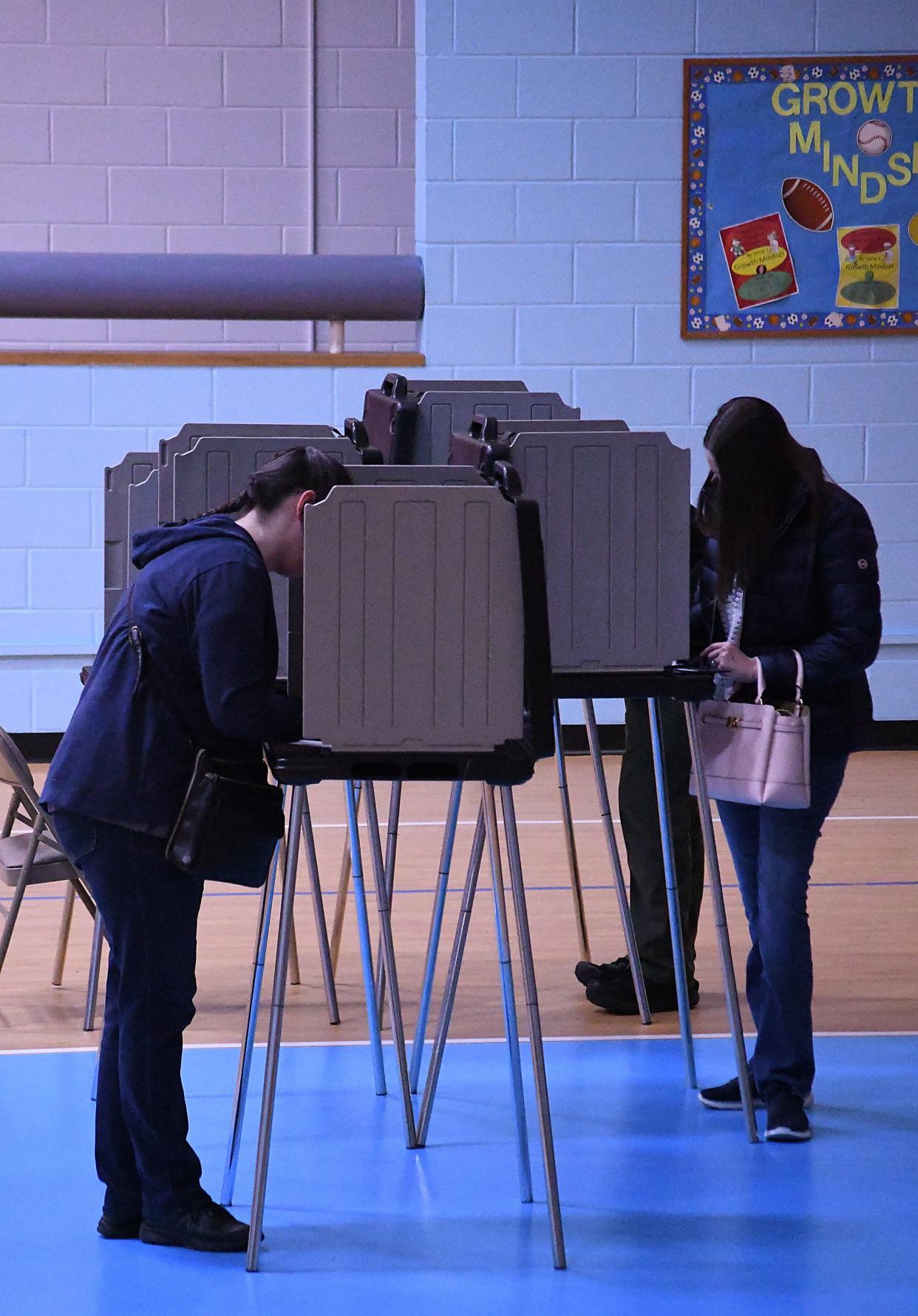The Wilmington area has more unaffiliated voters than ever before. How do parties reach them?

You’ve heard it before: North Carolina is growing, and fast. Or maybe you’ve experienced it in your own community.
With that growth, there has been a significant increase and change in how people register to vote.
The University of North Carolina at Chapel Hill’s Carolina Population Center predicts the Tar Heel state will be the 7th most populated state by 2030.
Wilmington-area counties are taking center stage in this trend. Brunswick County was the fastest-growing county with a 4.6% change, according to 2023 data from the U.S. Census Bureau. Pender County was second with a 4.3% change.
This growth can largely be attributed to net migration – more people moving into the state than out – according to the Carolina Population Center.
As a result, voter registration has also increased in the state and in Brunswick, New Hanover and Pender counties.
Notably, as registration grows, so does the number of unaffiliated voters.
Statewide, registered unaffiliated voters have risen from 18% in 2004 to 37% this year. It’s happening in the Wilmington area too. In Brunswick County, for example, unaffiliated voters make up about 38% of registered voters this year. Twenty years ago in 2004, unaffiliated voters only made up about 19% in Brunswick.
More: Younger voters can influence North Carolina elections. What do they care about?
Despite the general upward trend, it’s tough to make claims about the meaning or impact of this group for several reasons. First, these voters are not a homogenous group. There are people in this group who vote party lines through and through and others who are truly swing voters.
One thing is clear, unaffiliated voters do tend to be younger, according to the director of Carolina Demography at UNC-Chapel Hill's Carolina Population Center, Nathan Dollar.
By the numbers: Explore Wilmington-area voter demographics
Registering unaffiliated offers a sense of freedom
Registering as unaffiliated could simply be a practical decision. In a state where primaries are semi-closed, registering unaffiliated allows voters to participate in either party’s primary, said Nadine Gibson, assistant professor with the University of North Carolina Wilmington’s Department of Public and International Affairs.
“Registering with a party doesn't really get you anything in North Carolina,” Gibson said. “It actually gives you less freedom to vote in whatever primary you want.”
Inevitably, when these voters show up at the polls, they are presented with a political system run by two parties, leaving them to choose one or the other.
Data from the 2020 primary election showed that statewide more unaffiliated voters voted in the Democratic primary than they did in the Republican primary with 388,381 participating in the Democratic primary and 201,614 participating in the Republican primary.
Although this upward trend might not offer much insight on a change in voter behavior at the polls, it could be a sign that feelings around politics are changing, said Jonathan Weiler, a professor at the University of North Carolina at Chapel Hill and an author.
More: Confused about No Labels in North Carolina? We've got answers.
How do parties reach unaffiliated voters?
There is no one way to reach these voters because they are all over the board, Weiler said.
“It’s wrong to think of them as a monolith and that matters because if they all thought the same way, then it would be much easier to craft a message that appealed to that group of voters,” Weiler said.
Jill Hopman, chair of the New Hanover County Democratic Party, said their party has made a distinct effort at reaching these voters.
“Unlike the past, you know independents are now welcome at our meetings and events, to join our committees and auxiliaries and to speak about issues before our executive board,” Hopman said. “And we've purposely focused on issues that appeal to all residents in New Hanover County, especially independents, like book bans and school funding and toll taxes.”
Frank Williams, Brunswick County commissioner from District 5, said he thinks the general dissatisfaction among voters is more about national politics than it is local politics. He said he is not worried about losing votes to unaffiliated voters when he runs for reelection in November.
Getting an unaffiliated voter to the polls might be the biggest hurdle. The key to this group turning out may be less about policy and more about assuaging the general malaise around the political culture, Weiler said.
“What can you do to overcome the kind of cynicism and sense that politics is broken to get people to come out to vote” Weiler said.
This article originally appeared on Wilmington StarNews: Wilmington, NC, voters increasingly registering as unaffiliated

